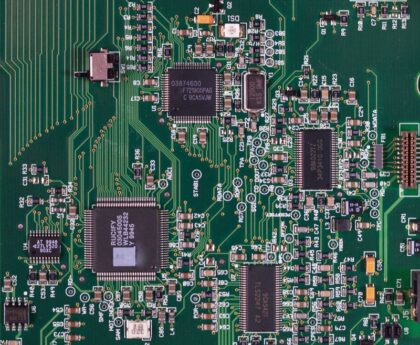Mitsubishi Power Delivers First Shipment for ACES Delta Clean Hydrogen Hub
Mitsubishi Power has delivered the first shipment of major equipment for its Hydaptive integrated hydrogen production plant, marking a significant milestone for the Advanced Clean Energy Storage (ACES) Delta Hub in Delta, Utah. The ACES Delta Hub, a joint project led by Mitsubishi Power Americas and Chevron U.S.A. Inc.’s New Energies Company, is a large-scale clean hydrogen facility designed to produce, store, and deliver green hydrogen to the western U.S.
Hydaptive: A Game-Changing Technology for Power Plants
The Hydaptive package developed by Mitsubishi Power integrates a hydrogen and natural gas-fueled gas turbine power plant with electrolysis to produce green hydrogen using 100% renewable power and onsite storage. This innovative technology provides a near-instantaneous power balancing resource that enhances the flexibility and grid-balancing capability of power plants. It allows simple cycle or combined-cycle power plants to ramp output up and down, making them more responsive to grid demands and providing grid-balancing services.
Hydaptive can be implemented in new gas turbine power plants or retrofitted into existing plants, enabling power plant operators to improve flexibility and extend the lifespan of their assets. By utilizing renewable energy and onsite storage of green hydrogen, Hydaptive contributes to decarbonizing the power sector and reducing greenhouse gas emissions.
The ACES Delta Hub: Scaling Up Clean Hydrogen Production
The ACES Delta Hub aims to significantly increase the production levels of clean hydrogen worldwide. With its capacity to convert 220 MW of renewable energy into almost 100 metric tons per day of green hydrogen, the hub will play a crucial role in meeting the growing demand for sustainable energy in the western U.S. region.
Central to the ACES Delta Hub are two massive salt caverns, with a storage capacity of more than 300 GWh of dispatchable clean energy. These salt caverns, located within the only major geologic salt dome formation in the western U.S., will store the green hydrogen produced by the Hydaptive system, ensuring a steady supply of clean energy for the region.
In addition to supplying green hydrogen to the Intermountain Power Agency’s “IPP Renewed” power plant project, the ACES Delta Hub includes plans for a pipeline that will deliver hydrogen to various consumers in the western U.S. region. The hub’s infrastructure will support the growth of a clean hydrogen economy, enabling decarbonization efforts across industries such as transportation, manufacturing, and power generation.
Editorial: Advancing Clean Energy Infrastructure
The delivery of equipment for the ACES Delta Hub underscores the importance of advancing clean energy infrastructure and developing innovative solutions to achieve a sustainable future. The integration of renewable energy, green hydrogen production, and storage technologies will play a pivotal role in transitioning to a carbon-neutral economy.
While the ACES Delta Hub was not included in the $7 billion federal hydrogen hub funding from the U.S. Department of Energy (DOE), it is part of a broader effort to establish a national network of clean hydrogen producers, consumers, and infrastructure. The ACES Delta Hub demonstrates that private-sector initiatives, in collaboration with government support, can drive the development of critical clean energy infrastructure.
Advice: Scaling up Clean Hydrogen
To fully realize the potential of clean hydrogen as a viable and scalable energy solution, further investment and collaboration are needed. Governments, industry leaders, and research institutions should continue to prioritize research and development in clean hydrogen technologies, including electrolysis, storage, and transportation.
In addition to funding support, regulatory frameworks that incentivize the production and use of clean hydrogen should be established to facilitate market growth. Governments can play a crucial role in setting ambitious decarbonization goals and creating policies that encourage the adoption of clean energy solutions.
Furthermore, partnerships between technology providers, energy companies, and industrial users will be vital in accelerating the deployment of clean hydrogen projects. Collaborative efforts can drive innovation and knowledge-sharing, ensuring the development of cost-effective and efficient technologies for clean hydrogen production, storage, and utilization.
By embracing the potential of clean hydrogen and investing in its development, we can take significant steps towards a sustainable and carbon-neutral future.

<< photo by César Badilla Miranda >>
The image is for illustrative purposes only and does not depict the actual situation.




